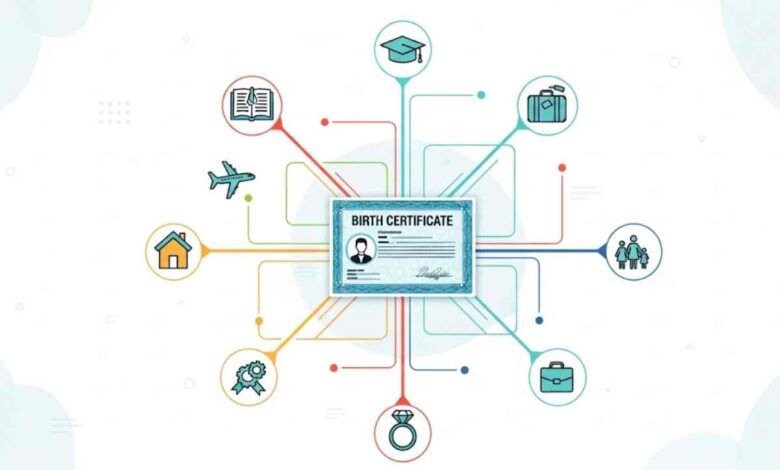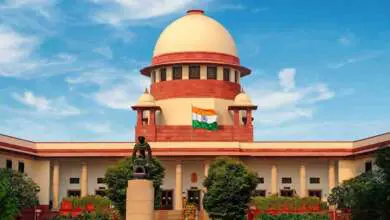New Birth Certificate Rules: Big News on Birth Certificate! Rules Have Changed, Know Them or Face Problems

New Birth Certificate Rules: The Government of India has introduced some significant changes to the Registration of Births and Deaths Act, 2023, which came into effect on October 1, 2023. The main objective of these new rules is to make the process of birth and death registration simpler, more transparent, and digital. As a result, the birth certificate will be considered a single and most important document required to avail various government and private services. Let’s learn about these new rules in detail.
New Rules for Birth Certificates
According to the Registration of Births and Deaths (Amendment) Act, 2023, the birth certificate will now be used as a single document. This means that the birth certificate will be considered the primary proof for various purposes such as admission to educational institutions, issuance of a driving license, voter list preparation, obtaining an Aadhaar number, marriage registration, and appointment to a government job. Under this new law, a national database of births and deaths will be created. This will ensure that all information is stored in one place, making the verification process for various services easier. State governments will be required to register births and deaths on the central government’s Civil Registration System (CRS) portal and share this data with the Registrar General of India.
Digital Birth Certificate
According to the new rules, all births and deaths will now be registered digitally. This will allow people to easily apply for a birth certificate online and download the digital certificate. This digital birth certificate will be valid in all government and private sectors. This will not only simplify the process but also help in protecting the environment by reducing the use of paper.
Changes in Passport Rules
As per the new rules, for individuals born on or after October 1, 2023, the birth certificate will be the sole proof of date of birth when applying for a passport. However, for those born before this date, other documents such as a school leaving certificate, PAN card, or driving license can still be used as proof of age, as before.
Who Can Register?
The list of persons responsible for registering a birth has also been expanded. Now, adoptive parents in the case of an adopted child, biological parents in the case of a birth through surrogacy, and the parent in the case of a child born to a single parent or an unmarried mother will be able to register the birth.
Some Important Points
- Mention of Religion: The new form includes a provision to separately mention the religion of both the father and the mother.
- Delayed Registration: Registration is mandatory within 21 days of birth. A penalty may be imposed for registration after this period.
- Name Inclusion: If the name is not given at the time of birth, there is a provision to add the name within a specified period.
These new rules are a significant step for the citizens of India. It will not only simplify the process of availing various services but also take a step forward towards building a transparent and digital India.





